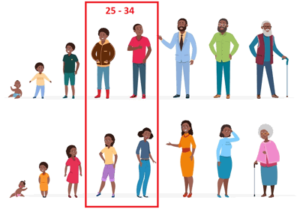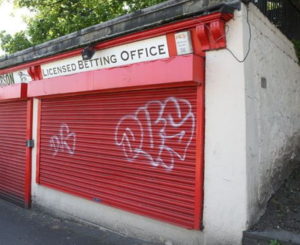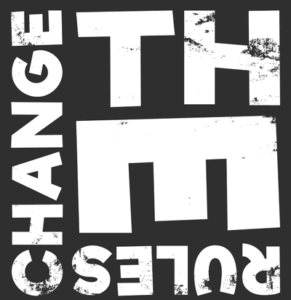Britons Now Spending Billions On Gambling, Mostly Online
 A new clinic run by the National Health Service that is aimed at helping people with gambling problems has opened in Leeds, becoming the first such facility to open outside of London. It comes in the wake of the Gambling Commission confirming that Britons spend around £14.5 billion on gambling from October 2017 through to September 2018. Whilst that includes all forms of gambling, including the national lottery, money spend on bingo and sportsbook betting, it’s still a huge amount of money.
A new clinic run by the National Health Service that is aimed at helping people with gambling problems has opened in Leeds, becoming the first such facility to open outside of London. It comes in the wake of the Gambling Commission confirming that Britons spend around £14.5 billion on gambling from October 2017 through to September 2018. Whilst that includes all forms of gambling, including the national lottery, money spend on bingo and sportsbook betting, it’s still a huge amount of money.
When looking at the sector by sector breakdown, the most money is spent online with that figure being close to £6 billion. Sportsbook betting and the National Lottery come next at around £3 billion each, whilst casinos beat bingo at just over £1 billion. If you remove the National Lottery from the conversation then around a third of all adults say that they have gambled in some form or another over the past year. Both men and women gambled more in 2018 than they did in 2015, though women’s betting habits declined slightly in 2018 compared to 2016 and 2017.
How Problem Gambling Is Defined
 According to the Royal College of Psychiatrists, about 1% of the population of the United Kingdom have a problem with gambling. The figure is based on approximately 9 people in every 1,000 struggling with controlling their gambling needs. The NHS National Gambling Clinic’s Founder and Director, Henrietta Bowden-Jones, described a gambling disorder as being a ‘total loss of control’ when it comes to how much is being spent on gambling activities.
According to the Royal College of Psychiatrists, about 1% of the population of the United Kingdom have a problem with gambling. The figure is based on approximately 9 people in every 1,000 struggling with controlling their gambling needs. The NHS National Gambling Clinic’s Founder and Director, Henrietta Bowden-Jones, described a gambling disorder as being a ‘total loss of control’ when it comes to how much is being spent on gambling activities.
Bowden-Jones said that problem gambling is the sort that can result in people ending up in debt, with some people losing their life savings or even their homes as a result. The general feeling is that more and more people are having issues with their gambling, with GamCare, the charity that supports those having problems, saying that they’ve seen an increase in calls year-on-year. The numbers have gone up from just over 22,000 in 2013 to just shy of 30,000 in the financial year of 2017-2018.
People Aged Between 25 & 34 ‘Most Likely To Gamble’
 According to the Gambling Commission’s report, people aged between 25 and 34 are the most likely to get involved in gambling. That is based on statistics that say around 40% of that age group admits to having gambled in some form or another within the last month when spoken to by researchers. Men are the most likely to have gambled, with 37% admitting to doing so in 2018 in comparison to 28% of women.
According to the Gambling Commission’s report, people aged between 25 and 34 are the most likely to get involved in gambling. That is based on statistics that say around 40% of that age group admits to having gambled in some form or another within the last month when spoken to by researchers. Men are the most likely to have gambled, with 37% admitting to doing so in 2018 in comparison to 28% of women.
Close to 1 in 5 people told the Gambling Commission that they had gambled in one form or another in the month prior to being interviewed. Perhaps somewhat unsurprisingly given the explosion in this side of the industry, the majority of those bets were placed online using a laptop or a mobile phone.
That fits in with the stats of around £5.6 billion being spent in online gambling according to the UKGC’s report. Liz Richie from the charity Gambling With Lives said that there are between 250 and 650 suicides every year because of gambling, with ‘suicides by young people rising’.
What It Means For Betting Shops
 The news that more money is being spent online than in any other method is bad news for betting shops, especially since the government decided to cut the maximum stake accepted on Fixed Odds Betting Terminals from £100 to £2.
The news that more money is being spent online than in any other method is bad news for betting shops, especially since the government decided to cut the maximum stake accepted on Fixed Odds Betting Terminals from £100 to £2.
Even before the cut was announced betting shops were closing at a faster rate than the likes of bingo parlours. By September of 2018, before the government’s confirmation of the cut, the number of betting shops open in the UK had fallen to 8,423. Bookmakers, meanwhile, reacted to the news of the cut in maximum stake by saying that they would be forced to close shops as a result.
When the government’s announcement was made, for example, William Hill declared that they would be forced to close around 700 shops in order to cope with the loss in revenue. That was in light of the fact that company felt it would be wiser to invest in developing their online and international portfolios rather than trying to improve the situation with their high street shops. William Hill said that the stake reduction could cost the firm around £100 million, with young people being the ones to most commonly attend the betting shops in order to use the machines.
New Advertising Rules Might Reduce Spending
 It’s possible that the new advertising rules, which were introduced in April of 2019, might result in a reduced amount of spending when the same research is carried out by the Gambling Commission next year.
It’s possible that the new advertising rules, which were introduced in April of 2019, might result in a reduced amount of spending when the same research is carried out by the Gambling Commission next year.
It is now illegal for companies to release adverts that appear to appeal to people under the age of 18, with gambling companies being banned from using animated characters from television or films in their adverts. That comes at the same time as companies are not allowed to use celebrities that appear to be under the age of 25.
The latter has led to questions being asked of the Gambling Commission, thanks to adverts using footballers being pulled up in spite of the fact that half of all Premier League teams are sponsored by betting firms. The idea behind the stricter rules on gambling adverts was to protect children and the most vulnerable, with research suggesting that 66% of people aged between 11 and 16 have seen a gambling advert on television and 14% of people in the same age bracket admitting to having gambled in the past week.
MPs are also trying to protect children by regulating in-game spending on things such as loot boxes, which give users a random reward during play. Belgium banned loot boxes in 2018, becoming the first country to do so.
There is research that suggests that people who engage in the use of loot boxes are more likely to develop a gaming problem. It begs the question of whether the UK is becoming a nation of gamblers, given how much people appear to be spending on gambling in the country.



